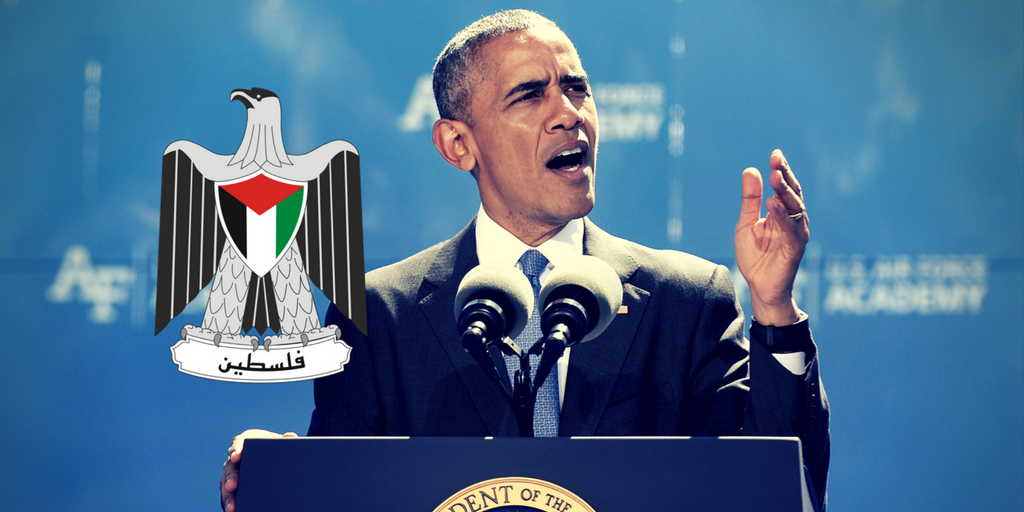To understand what can and ought to be done, it is first important to understand the nature of the BDS movement.
Earlier this month Norway, Denmark and Switzerland did something surprising.
Norway announced that it was demanding the return of its money from the Palestinian Human Rights and Humanitarian Law Secretariat, for the latter’s funding of a Palestinian women’s group that built a youth center near Nablus named for PLO mass murderer Dalal Mughrabi.
Denmark followed, announcing it was cutting off all funding to the group.
And last week, the Swiss parliament passed a resolution directing the government to amend Swiss law to block funding of NGOs “involved in racist, antisemitic or hate incitement actions.”
For years, the Israeli government has been urging these and other European governments to stop funding such groups, to no avail. What explains their abrupt change of heart? In two words: Donald Trump.
For years, the Obama administration quietly encouraged the Europeans to fund these groups and to ratchet up their anti-Israel positions. Doing so, the former administration believed, would coerce Israel to make concessions to the PLO.
But now, Trump and his advisers are delivering the opposite message. And, as the actions by Denmark, Norway and Switzerland show, the new message is beginning to be received.
If the US administration keeps moving forward on this trajectory, it can do far more than suspend funding for one terrorism-supporting Palestinian NGO. It can shut down the entire BDS industry before Trump finishes his current term in office.
To understand what can and ought to be done, it is first important to understand the nature of the BDS movement. Under the catchphrase BDS, two separate campaigns against Israel and against Jews are being carried out.
The first BDS campaign is a campaign of economic warfare. The focal point of that campaign is Europe. The purpose of the campaign is to harm Israel’s economy by enacting discriminatory, anti-Israel trade policies and encouraging unofficial consumer and business boycotts of Israeli firms and products.
The US Congress can end this economic war against Israel by passing laws penalizing European states for engaging in trade practices that breach the World Trade Organization treaties. The US Treasury Department can also push strongly and effectively for such an end in its trade negotiations with the EU. The Treasury Department can also investigate whether and how EU trade practices toward Israel constitute unlawful barriers to trade.
 Unlike the situation in Europe, where the BDS economic war against Israel is fairly advanced, efforts in the US to mount economic boycotts of Israel hit an iceberg early on due to the swift preemptive actions taken by state legislatures.
Unlike the situation in Europe, where the BDS economic war against Israel is fairly advanced, efforts in the US to mount economic boycotts of Israel hit an iceberg early on due to the swift preemptive actions taken by state legislatures.
In 2015, then-South Carolina governor Nikki Haley became the first governor to sign a law barring her state government from doing business or investing in companies that boycott Israel. Last week Kansas became the 21st US state to pass an anti-BDS law along the same lines. Last month, all 50 state governors declared opposition to BDS.
The second BDS campaign being carried out against Israel is a form of political and social warfare.
Its epicenter is US academia. Its purpose is to erode US support for Israel, by making it politically unacceptable and socially devastating to publicly voice support for Israel on college campuses and more generally in leftist circles.
As is the case with the economic BDS campaign, the best way to defeat political BDS is through state and federal government action. If state and federal governments withheld funding to universities and colleges that permit BDS groups to operate on their campuses, campus administrators, who to date have refused to lift a finger against these hate groups, would be forced into action.
If the US Education and Justice departments opened civil rights investigations against major BDS groups for antisemitic bigotry, campus administrators would finally begin banning them from their campuses.
For many Israelis, the notion that defeating BDS is a job for the US government rather than for grassroots, American Jewish activists, will come as a surprise.
When Israelis think about the BDS movement, they tend to think that the American Jewish community is the place to turn for assistance.
This is not merely incorrect.
As two studies published in the last few weeks show, the notion that Israel can look to the American Jewish community for help with anything is becoming increasingly dubious.
To be sure, there are several American Jewish groups that devote massive resources to combating BDS on campuses. But their actions are tactical.
They fight specific BDS resolutions coming to votes before student councils. They train pro-Israel students to defend Israel to their peers.
While helpful, none of these actions constitutes a serious challenge to the movement.
On a strategic level, the effective moves made to date against BDS have been initiated by Republicans.
Alan Clemmons, the South Carolina lawmaker who initiated the anti-BDS bill in his statehouse and has since gone on to spearhead the state government anti-BDS drive nationally, is a Christian Zionist.
Clemmons didn’t act out of concern for South Carolinian Jews. The Jewish community of South Carolina numbers a mere 20,000 members. The state-by-state anti-economic BDS campaign is neither the brainchild of any major Jewish group nor the product of their efforts.
So, too, to the extent that the Trump administration and the Republican-controlled Congress take action to defeat BDS on campuses and in Europe, they won’t be answering the call of their Jewish constituents. American Jews vote overwhelmingly for the increasingly anti-Israel Democratic Party. And while making up a mere 2% of the US population, American Jews contributed 50% of the donations to the Democratic Party in the 2016 elections.
This then brings us to the two studies of the American Jewish community and its future trajectory.
The first study was published by the Jewish Agency’s Jewish People Policy Institute. It analyzes the data from the 2013 Pew survey of American Jewish attitudes. The Pew survey demonstrated that the Jewish identity of American Jews is growing increasingly attenuated and superficial.
Famously, while 19% of American Jews said that they view observance of Jewish law as an essential part of their Jewish identity, 42% said they viewed having a good sense of humor as an essential part of their Jewish identity.
The JPPI study analyzed the Pew data regarding rates of marriage and childbearing among American Jews aged 24-54. The study started with the data on intermarriage. Sixty percent of non-haredi American Jews are married to non-Jews. A mere 32% of married American Jews are raising their children as Jewish to some degree.
From there, the JPPI study considered marriage and childbirth rates in general. It works out that a mere 50% of American Jews between 24 and 54 are married. And a mere 40% of American Jews between those ages have children living with them.
The JPPI study tells us two important things.
First, in the coming years there will be far fewer American Jews. Second, among those who are Jewish, their Jewish identity will continue to weaken.
Clearly, it would be unwise for Israel to believe that it can depend on such a community to secure its interests in the US for the long haul.
The second study shows that not only can Israel not expect the American Jewish community to help it maintain its alliance with the US, the number of American Jews willing to spearhead anti-Israel campaigns is likely to grow in the coming years.
The second study was produced by Brand Israel, a group of public relations experts that for the past decade has been trying to change the way young Americans think about Israel. The idea was to discuss aspects of Israel that have nothing to do with the Palestinians, with an emphasis on Israel as a hi-tech power. The hope was that by branding Israel as the Start-Up Nation, leftists, who support the Palestinians, would still support Israel.
Fern Oppenheim, one of the leaders of Brand Israel, presented the conclusions of an analysis of the group’s work at the Herzliya Conference this week and discussed them with The Times of Israel. It works out that the PR campaign backfired.
Far from inspiring increased support for Israel, Oppenheim argued that the hi-tech-centric branding campaign made leftist American Jews even more anti-Israel. She related that over the past decade, there has been an 18-point drop in support for Israel among US Jewish students.
To remedy the situation, which she referred to as “devastating,” Oppenheim recommended changing the conversation from hi-tech to “shared values.”
The problem with Oppenheim’s recommendation is that it ignores the problem.
Young American Jews aren’t turning against Israel because their values are different from Israeli values. By and large, they have the same values as Israeli society. And if they know anything about Israel, they know that their values aren’t in conflict with Israeli values.
Young American Jews are turning on Israel for two reasons. First, they don’t care that they are Jewish and as a consequence, see no reason to stick their necks out on Israel’s behalf.
And second, due in large part to the political BDS campaign on college campuses, supporting Israel requires them to endanger or relinquish their ideological home on the Left. Since their leftist identities are far stronger than their Jewish identities, young American Jews are joining the BDS mob in increasing numbers.
This then brings us back to BDS.
The only way to diminish the groundswell of American Jews who are becoming hostile toward Israel is to defeat the forces of political BDS on campuses. To do this, Israel should turn not to the Jewish community but to evangelical Christians, the Trump administration and the Republican- controlled Congress.
As for the American Jews, Israel needs to stop viewing the community as a resource and begin to view it as a community in crisis. To this end, the most significant contribution Israel can make to the American Jewish community – particularly to non-Orthodox American Jews – is to encourage them to make aliya. Assuming that current trends will continue, the only way non-Orthodox American Jews can have faith their grandchildren will be Jewish is to make aliya.
No, this won’t appeal to all American Jews. But nothing Israel does will. Israel’s job isn’t to reach the unreachable. It is to protect its alliance with the US and to help the Jews that remain in the room.
Originally Published in Jerusalem Post





